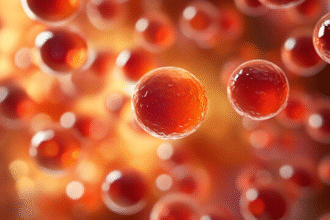First Aid for Angina Pectoris
Angina pectoris is a clinical syndrome characterized by sudden chest pain or discomfort due to insufficient coronary blood flow, leading to temporary myocardial ischemia and hypoxia. It is often a warning sign of underlying coronary artery disease.
Recognizing Angina Pectoris
Key Symptoms:
- Chest Pain: Paroxysmal, squeezing pain behind the sternum, often radiating to the precordial area and left upper extremity.
- Triggers: Pain typically occurs during physical exertion or emotional stress.
- Duration: Episodes last 3-5 minutes and resolve with rest or nitrate therapy.
- Frequency: May occur once every few days or several times a day.
Other Causes:
While coronary artery disease is the primary cause, other heart conditions or uncontrolled high blood pressure can also lead to angina.
Self-Help Measures
If you experience angina symptoms:
1. Stop Activity: Cease all physical activity immediately and lie down or sit in a comfortable position.
2. Relax: Loosen tight clothing, stay warm, and avoid stress.
3. Nitroglycerin: Place 1-2 nitroglycerin tablets under the tongue (do not swallow). Relief usually occurs within 1-2 minutes and lasts up to 30 minutes.
First Aid at Home
If someone near you experiences angina symptoms:
- Rest: Ensure the person stops all activities and lies down or sits comfortably.
- Administer Nitroglycerin:
- Place 1-2 tablets under the tongue. Relief typically occurs within 5 minutes and lasts up to 2 hours.
- Alternatively, crush amyl nitrite in a handkerchief and have the person sniff it. Effects occur within 1-15 seconds but may cause side effects like headache or flushing. Avoid in hypertensive heart disease.
- Acupressure: If no medication is available, gently pinch the Neiguan acupoint (2 inches above the wrist on the forearm, between the two tendons) or press the painful area of the arm.
- Apply Heat: Use a warm towel on the chest to alleviate discomfort.
- Oxygen: If available, provide supplemental oxygen.
- Seek Medical Attention: After symptoms subside, visit a hospital for further evaluation.
Important Notes
- Do Not Delay: Angina can be a precursor to a heart attack. Prompt action is critical.
- Avoid Overexertion: Do not allow the person to resume activity until cleared by a healthcare provider.
- Monitor Symptoms: If pain persists or worsens, call emergency services immediately.
This guide is for educational purposes and does not replace professional medical advice. Always consult a healthcare provider for diagnosis and treatment.






